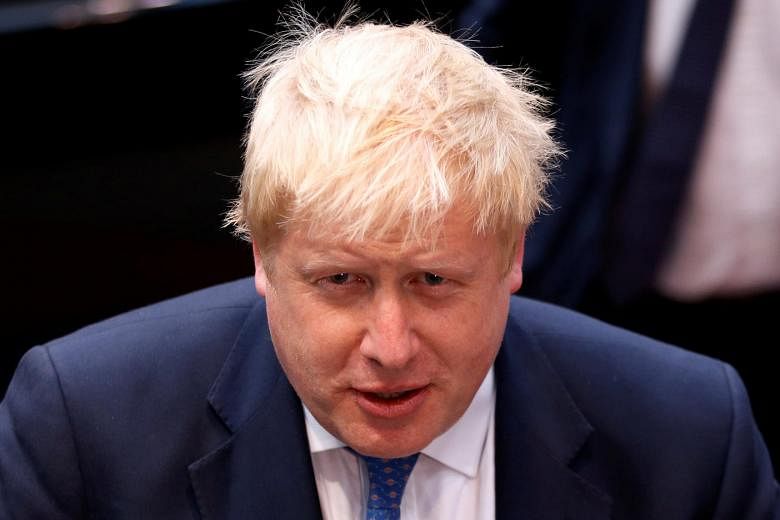BRUSSELS (AFP) - New British foreign minister and top Brexit backer Boris Johnson pledged on Monday (July 18) that Britain would continue to play a "leading role" in Europe as he met his European Union peers in Brussels for the first time.
The normally ebullient Johnson was on his best behaviour after infuriating his partners in the run-up to last month's referendum by comparing the EU's ambitions for closer integration to Adolf Hitler's.
"We have to give effect to the will of the people and leave the European Union but... we are not going in any way to abandon our leading role in European participation," Johnson told reporters.
He said he had a "very good conversation" with EU foreign affairs head Federica Mogherini late Sunday - although a dinner with her was called off after his plane had to make an emergency landing.
"I am very much looking forward to meeting my colleagues," he added.
US Secretary of State John Kerry, attending his first EU foreign ministers meeting, said Johnson had told his peers Britain intended to remain a "vital component" of Europe.
Kerry visits London later Monday in an effort to reaffirm the two sides' shared history and values which the Brexit vote had not changed, he said.
Johnson was a key player in the June 23 Brexit referendum and his appointment last week stunned many in Europe, with French Foreign Minister Jean-Marc Ayrault saying he had lied to voters during the campaign.
Ayrault, speaking on his arrival at the talks, said he had a "frank and useful" phone conversation with Johnson over the weekend.
"There are lots of things to work on with Britain. I will always talk to Boris Johnson with the greatest sincerity, the greatest frankness, I think it's like that we have to move on," he said.
Ayrault repeated French calls for Britain to launch the Brexit negotiations as soon as possible so as to end uncertainty.
New British Prime Minister Theresa May says she will likely do that at the end of this year or early in 2017 but not before London has worked out what sort of future relationship it wants with the other 27 EU members.
The prospect of Britain leaving has stoked fears the bloc could struggle for global heft since it will be losing a nuclear-armed power with a permanent, veto-wielding seat on the UN Security Council.
Among one of the last acts of former prime minister David Cameron, who resigned last week, was to announce that Parliament would vote Monday to replace Britain's ageing Trident nuclear deterrent.
MPs are widely expected to approve the revamp but some may blanch at the massive price tag of £41 billion (S$87 billion).
The foreign ministers' meeting was overshadowed by the failed military coup in Turkey and last week's deadly attack in Nice, the third major terror incident in France since 2015.
Johnson was awaited with some trepidation given his reputation for quips and bon mots which have often landed him in hot water.
The former mayor of London and one-time schoolmate of Cameron is well known in Brussels where he worked in the 1990s as the Daily Telegraph's EU correspondent.
His critics accuse him of exaggerating his stories to play to the eurosceptic gallery at home.
Officials in Brussels stressed they would welcome Johnson but there is little doubt his Brexit role ruffled feathers.
Johnson was supposed to have met all his EU colleagues on Sunday for an informal dinner but several member states objected, saying it would amount to "informal talks" with London before it began formal divorce negotiations, one European diplomat said.

